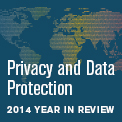The country awoke to what seems to be a common occurrence now: another corporation struck by a massive data breach. This time it was Anthem, the country’s second largest health insurer, in a breach initially estimated to involve eighty million individuals. Both individuals’ and employees’ personal information is at issue, in a breach instigated by hackers.
Early reports, however, indicated that this breach might be subtly different than those faced by other corporations in recent years. The difference isn’t in the breach itself, but in the immediate, transparent and proactive actions that the C-Suite took.
Unlike many breaches in recent history, this attack was discovered internally through corporate investigative and management processes already in place. Further, the C-Suite took an immediate, proactive and transparent stance: just as the investigative process was launching in earnest within the corporation, the C-Suite took steps to fully advise its customers, its regulators and the public at-large, of the breach.
Anthem’s chief executive officer, Joseph Swedish, sent a personal, detailed e-mail to all customers. An identical message appeared in a widely broadcast press statement. Swedish outlined the magnitude of the breach, and that the Federal Bureau of Investigation and other investigative and regulatory bodies had already been advised and were working in earnest to stem the breach and its fallout. He advised that each customer or employee with data at risk was being personally and individually notified. In a humanizing touch, he admitted that the breach involved his own personal data.
What some data privacy and information security advocates noted was different: The proactive internal measures that discovered the breach before outsiders did; the early decision to cooperate with authorities and press, and the involvement of the corporate C-Suite in notifying the individuals at risk and the public at-large.
The rapid and detailed disclosure could indicate a changing attitude among the American corporate leadership. Regulators have encouraged transparency and cooperation among Corporate America, the public and regulators as part of an effort to stem the tide of cyber-attacks. As some regulators and information security experts reason, the criminals are cooperating, so we should as well – we are all in this together.
Will the proactive, transparent and cooperative stance make a difference in the aftermath of such a breach? Only time will tell but we will be certain to watch with interest.
read more

 Subscribe
Subscribe


